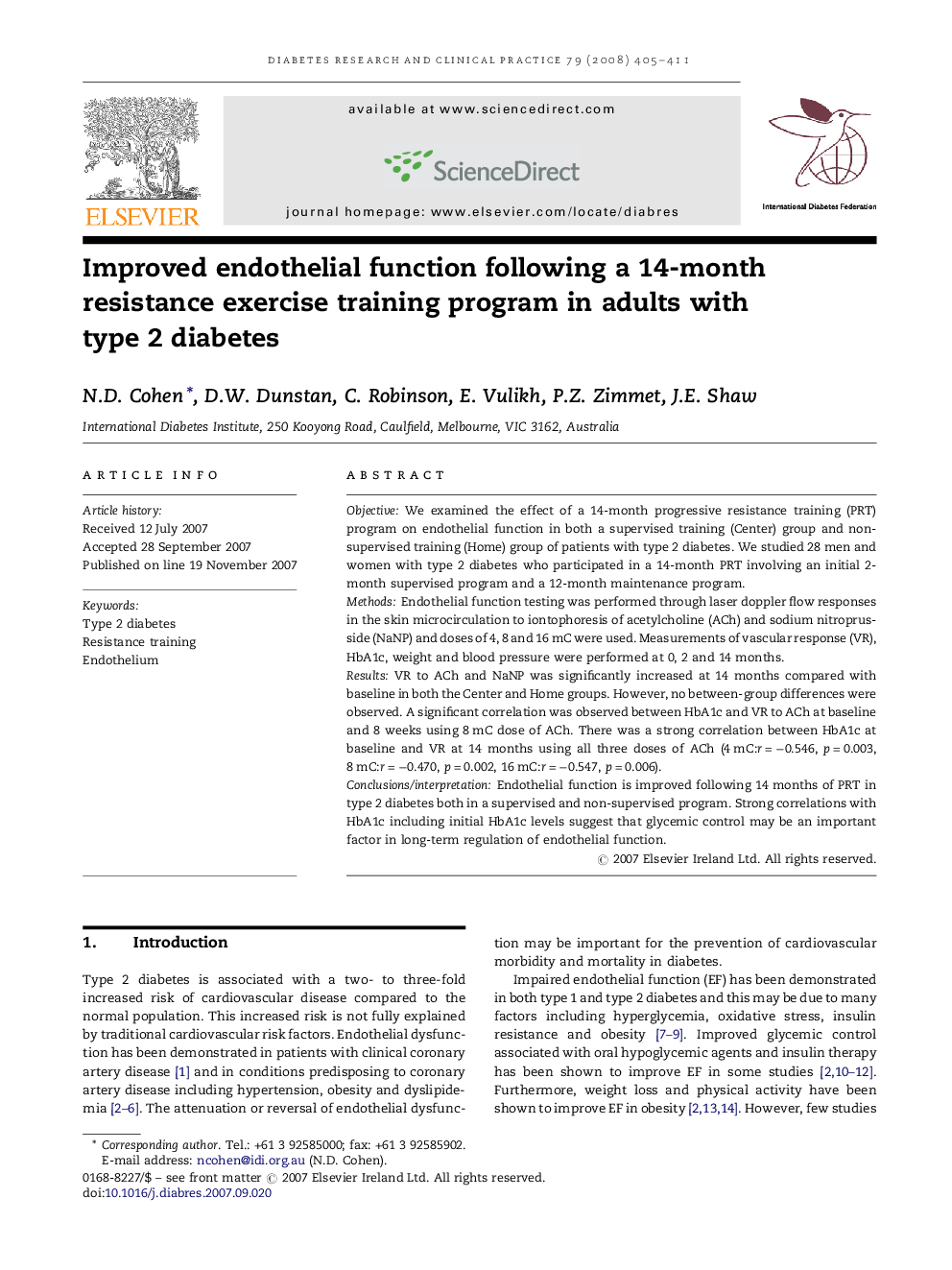| Article ID | Journal | Published Year | Pages | File Type |
|---|---|---|---|---|
| 2798417 | Diabetes Research and Clinical Practice | 2008 | 7 Pages |
ObjectiveWe examined the effect of a 14-month progressive resistance training (PRT) program on endothelial function in both a supervised training (Center) group and non-supervised training (Home) group of patients with type 2 diabetes. We studied 28 men and women with type 2 diabetes who participated in a 14-month PRT involving an initial 2-month supervised program and a 12-month maintenance program.MethodsEndothelial function testing was performed through laser doppler flow responses in the skin microcirculation to iontophoresis of acetylcholine (ACh) and sodium nitroprusside (NaNP) and doses of 4, 8 and 16 mC were used. Measurements of vascular response (VR), HbA1c, weight and blood pressure were performed at 0, 2 and 14 months.ResultsVR to ACh and NaNP was significantly increased at 14 months compared with baseline in both the Center and Home groups. However, no between-group differences were observed. A significant correlation was observed between HbA1c and VR to ACh at baseline and 8 weeks using 8 mC dose of ACh. There was a strong correlation between HbA1c at baseline and VR at 14 months using all three doses of ACh (4 mC:r = −0.546, p = 0.003, 8 mC:r = −0.470, p = 0.002, 16 mC:r = −0.547, p = 0.006).Conclusions/interpretationEndothelial function is improved following 14 months of PRT in type 2 diabetes both in a supervised and non-supervised program. Strong correlations with HbA1c including initial HbA1c levels suggest that glycemic control may be an important factor in long-term regulation of endothelial function.
